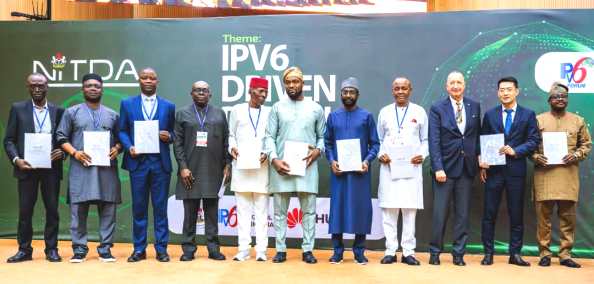The National Information Technology Development Agency (NITDA), in collaboration with Huawei, the IPv6 Forum, and the IPv6 Council Nigeria, recently held the IPv6 Driven Digital Summit in Abuja, themed “Bringing Net 5.5G Into Reality: Inspiring New Growth.” This summit marked a significant step forward in advancing Nigeria’s digital technology and emphasized the necessity of transitioning to IPv6 to meet future internet demands.
RELATED: IXPN’s boss Rudman explains why we must embrace IPv6
In his keynote address, the Minister of Communications, Innovation, and Digital Economy, Dr. Bosun Tijani, highlighted the summit’s goal of driving Nigeria’s digital transformation and exploring how IPv6 could unlock new growth opportunities. He noted that the Nigerian government is already deploying IPv6 to enhance cybersecurity, stimulate digital economic growth, and strengthen the nation’s internet infrastructure.
“Nigeria is among the first countries in Africa to migrate from IPv4 to IPv6. This allows service providers to offer improved services, enhances security by preventing easy hacks, and ensures service availability through better traffic management. While some of our companies have already transitioned to IPv6, we aim for it to become the standard across all critical service providers within the digital economy,” Tijani stated. He also pointed out that IPv6 helps authorities identify users, not just for security purposes but also to prevent misuse of the system.
Tijani added, “Although IPv6 is the global standard, only a few countries have fully implemented it. Countries like the US, France, Saudi Arabia, and the UAE have adopted IPv6, while many others are still catching up.”
NITDA’s Director General, Kashifu Inuwa Abdullahi, also spoke at the summit, emphasizing President Bola Ahmed Tinubu’s priority of accelerating diversification through industrialization, digitization, creative arts, manufacturing, and innovation. Abdullahi mentioned, “We need a strategic approach and policy direction because operators may resist migration due to the need for significant configuration changes. This summit aims to spark conversation and awareness so that the adoption of IPv6 becomes widespread. Transitioning to IPv6 can boost economic activity and secure our cyberspace.”
Mr. Latif Ladid, President of the Internet Protocol Version (IPv6) Forum, praised Nigeria’s efforts, stating, “Nigeria’s bold initiatives to modernize its internet infrastructure set an example for Africa and beyond, advancing IPv6 and broadband deployment toward Net 5.5G. IPv6 is beneficial for Nigeria, and Nigeria is proving to be a leader in its adoption.” He highlighted that Nigeria ranks as a leading nation in internet use in Africa and is seventh globally.





























